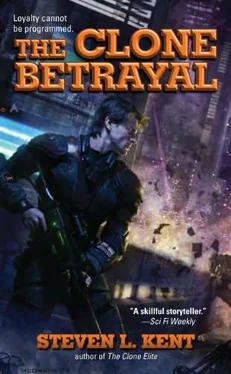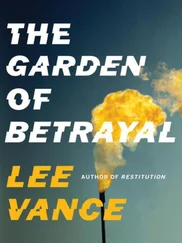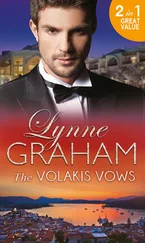Steven Kent - The Clone Betrayal
Здесь есть возможность читать онлайн «Steven Kent - The Clone Betrayal» весь текст электронной книги совершенно бесплатно (целиком полную версию без сокращений). В некоторых случаях можно слушать аудио, скачать через торрент в формате fb2 и присутствует краткое содержание. Жанр: Боевая фантастика, на английском языке. Описание произведения, (предисловие) а так же отзывы посетителей доступны на портале библиотеки ЛибКат.
- Название:The Clone Betrayal
- Автор:
- Жанр:
- Год:неизвестен
- ISBN:нет данных
- Рейтинг книги:5 / 5. Голосов: 1
-
Избранное:Добавить в избранное
- Отзывы:
-
Ваша оценка:
- 100
- 1
- 2
- 3
- 4
- 5
The Clone Betrayal: краткое содержание, описание и аннотация
Предлагаем к чтению аннотацию, описание, краткое содержание или предисловие (зависит от того, что написал сам автор книги «The Clone Betrayal»). Если вы не нашли необходимую информацию о книге — напишите в комментариях, мы постараемся отыскать её.
The Clone Betrayal — читать онлайн бесплатно полную книгу (весь текст) целиком
Ниже представлен текст книги, разбитый по страницам. Система сохранения места последней прочитанной страницы, позволяет с удобством читать онлайн бесплатно книгу «The Clone Betrayal», без необходимости каждый раз заново искать на чём Вы остановились. Поставьте закладку, и сможете в любой момент перейти на страницу, на которой закончили чтение.
Интервал:
Закладка:
“You’re not listening, Harris. There aren’t going to be any more transports. We’re fighting for our specking lives up here, and we are losing.”
Outside the cockpit, the sky had turned dark. Stars sparkled in the darkness, but there was no moon to break up the blackness around us. The ocean below us seemed to drop out and fade into a shadow.
CHAPTER FIFTY-THREE
“No sign of them yet,” Hollingsworth told Thomer for the fourth time. We would meet up with Hollingsworth at the garage under the government buildings—the one the local militia had converted into an armory. Hollingsworth and his men were already there. I had Thomer check in with him every fifteen minutes in case the Unifieds got there before we did.
Hollingsworth gave Thomer the same response every time: “No sign of them yet.”
We also received constant reports from the fleet. They weren’t pretty. The U.A. had a new class of fighters that outmaneuvered our Tomcats and Phantoms. We’d lost badly when our fighters engaged one of their squadrons; then Thorne wedged several frigates into the lanes and turned the fight around.
“We can’t get past their specking shields,” Warshaw said, when I called in.
I would have told Thorne to cut us loose and run, but he had nowhere to go. The new ships were quicker and self-broadcasting. They were killing us in a fair fight, and we had no chance of outrunning them.
It occurred to me that we were flying unprotected, too. The U.A. Fleet didn’t need to send fighters into the atmosphere to destroy us. Their battleships could target us from space, but that did not seem to fit in with their plans.
Then the other shoe dropped. “Harris …? Harris, do you read me?” It was Warshaw. He sounded frantic as he said five words I did not want to hear. “You are on your own.”
Seconds later, we all saw the first flash. It was only a pinprick of light, brighter but no larger than the stars in the night sky. It winked enough to catch my attention and vanished.
“Oh, shit,” I whispered after the first flash. “Did you see that?”
Thomer had caught it. The pilot had missed it.
More flashes followed—a rapid series of second-long flashes all in the same spot. It looked like someone was flashing Morse code with a tiny light.
“What was that?” the pilot asked. I think he knew.
“Death,” I said.
Unable to believe that a force as powerful as the Scutum-Crux Fleet could be defeated, the pilot tried to raise the Kamehameha . There was no response.
“Should we tell them?” Thomer asked, looking back toward the kettle.
“No,” I said. Why discourage the men? They had a fight ahead of them either way. Better to send them in believing they have a chance.
The explosions continued for another thirty minutes. Watching the quick bursts of light and knowing each meant the deaths of hundreds of clones tortured me, then something worse happened. The explosions stopped, and I knew that the battle had ended. The peaceful sky meant that hundreds of thousands of clones were gone.
We did not speak to each other for the rest of the flight to Norristown. When he was not calling Hollingsworth, Thomer sat silently, staring out into the moonless night. We sat tensely—three men way out on a limb and waiting for the branch to break.
We would make our last stand in the ruins of Norristown, the city so many men had died to protect. As we flew over the southern edge of the city, we passed two- and three-story buildings that stuck out of the ground like giant grave markers in a cemetery gone to seed. Ground swellings below us marked the spots where buildings had collapsed. In my mind, each hill became a mass grave.
In the middle of this, the government building complex was a steel-and-glass anomaly. Its walls and walkways still intact, the government complex was a modern Camelot overlooking a decimated fiefdom. Hollingsworth had already mapped the grounds for tactical use. Following his instructions, we arranged our seventeen transports in strategic spots as we landed.
The transports weren’t much to look at, but then the military had its own school of landscaping—FOCPIG. Military men love their acronyms. In this case, FOCPIG stood for Fire, Observed, Concealed, Protected, Integrated, non-Geometric; in short, it is the process of preparing a field for battle. In the FOCPIG school of landscaping, aesthetics mattered less than utility. Placed strategically, those transports would create nearly impenetrable obstacles that the Unifieds would need to run around.
Judging by the first wave of transports the Unifieds had sent, they’d come light. Until they sent a second wave, they would not have tanks or gunships, just men, guns, and a handful of light-armor vehicles. That would play into our preparations. According to the feng shui of FOCPIG, our job was to route them so that we could have every advantage. Using transports as barriers, we would steer the enemy between the outstretched arms of the government center—a natural gauntlet. Once they entered, we would have the high-ground advantage.
Thomer and Hollingsworth remained with me as I surveyed the grounds. Their underlings swapped in and out as they gave orders. After a few minutes, Hollingsworth went down to the garage for an inspection.
By now, I had armor of my own, brand-new equipment that Hollingsworth’s men snagged out of the armory. The armor was stiff, and none of my preferences had been programmed into it, but it was better than isolation. When I got the chance, assuming I lived to get the chance, I would calibrate the ocular controls in the visor to read my particular eye movements. I could live with the glitches, the armor came with a commandLink, and that meant I could communicate with the men unassisted.
We walked along the roof of one of the wings of the building—“snipers’ row.” Hollingsworth and Thomer knew the drill. You placed snipers where they would have a good view of anyone passing by, then you waited. Often, you had to sit patiently letting viable targets march past in exchange for a clean shot at the men at the top of the food chain. Shoot the peons in the front, and you warn the bastards in the back that they’re walking into a trap. Sniping is a game of patience.
Not that we were going to take anybody by surprise. There was only one way into the armory, and we marked that path by placing our transports along it. If they wanted us, the U.A. invaders would need to walk our gauntlet. I wondered what they would do once they entered it.
In the predawn hours of an otherwise calm summer night, we moved along the top of the building. Locked up in my combat armor, I did not worry about the breeze or rain. My bodysuit kept me cool and dry.
The grounds around the government center must have been beautiful at one time. I saw shattered concrete beds that must once have been a network of ponds. A border of waist-high grass grew around the complex. A soft breeze combed through the grass.
“They’re coming, General,” Hollingsworth called up from the garage. He must have had some kind of mobile radar set up.
“Do you have a count?” I looked out toward the horizon and saw only the wide, open expanse over the broken city. Off in the distance, the three remaining skyscrapers that Doctorow used for dormitories, glittered.
“Thirty ships coming in from the south,” Hollingsworth said.
I had been looking east, but I now turned south, the direction from which we had just come. There were hills to the south. Even as I watched, dots appeared in the horizon. They looked no more significant than the sparks in the darkness.
“We’ve got company, boys. Get to your stations. Dig in. Get comfortable,” I called over the interLink.
Читать дальшеИнтервал:
Закладка:
Похожие книги на «The Clone Betrayal»
Представляем Вашему вниманию похожие книги на «The Clone Betrayal» списком для выбора. Мы отобрали схожую по названию и смыслу литературу в надежде предоставить читателям больше вариантов отыскать новые, интересные, ещё непрочитанные произведения.
Обсуждение, отзывы о книге «The Clone Betrayal» и просто собственные мнения читателей. Оставьте ваши комментарии, напишите, что Вы думаете о произведении, его смысле или главных героях. Укажите что конкретно понравилось, а что нет, и почему Вы так считаете.












